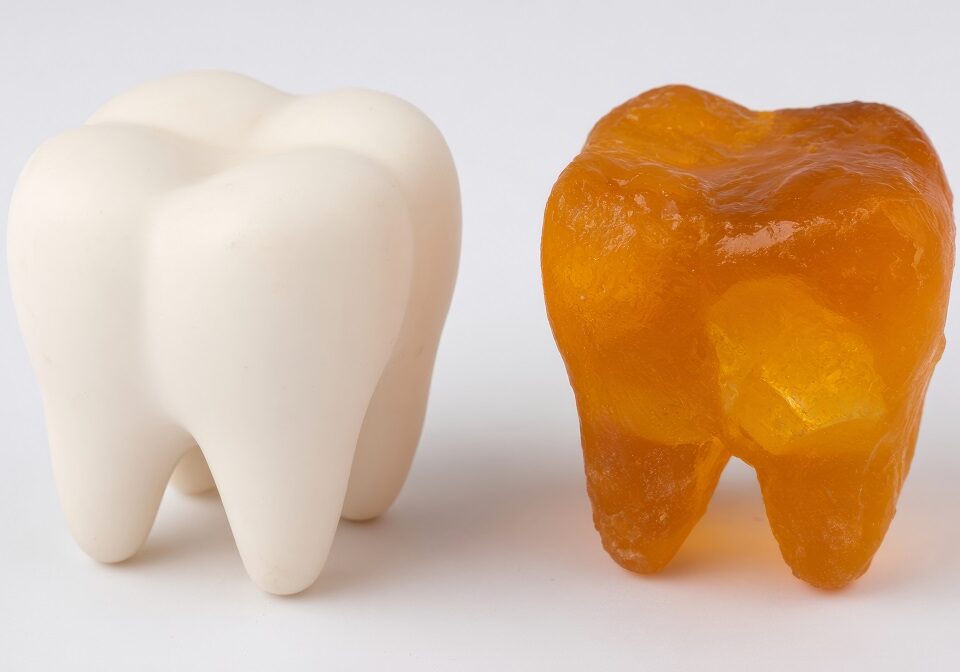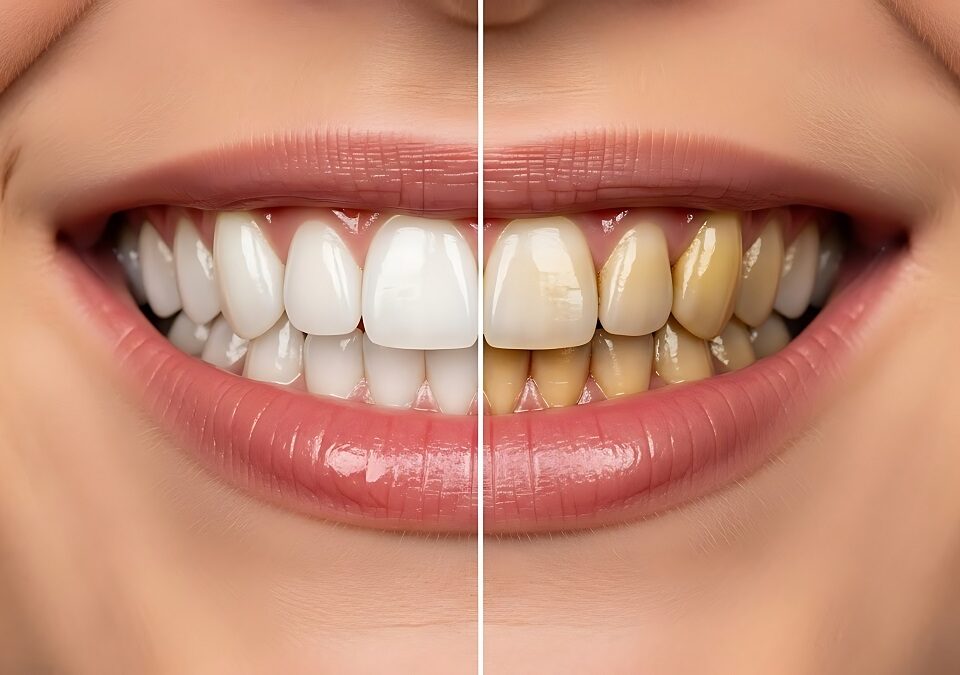
How to cure TMJ permanently.
May 31, 2022
Deep teeth cleaning at the Dentist
September 23, 2022Mouth-Body Connection
In the past few decades, medical professionals have established the connection of our oral health to our physical and mental well-being. With this, they were able to figure out how proper dental hygiene and routine check-ups can maintain the body’s health.
Our gums play an important role in our “mouth-body connection”, they are the portal to the rest of your body. If we start to neglect our gums, bacteria will then start attacking them allowing infection, subsequently damaging soft tissues and bone in your mouth that keeps your teeth in place.
When gum disease or periodontitis develops, bacteria and germs can pass through the mouth’s systemic tissues, enter your bloodstream, and trigger illnesses and diseases in your body.
Definition of Mouth-Body Connection
You may be wondering what the connection of the mouth to our body is. Believe it or not, your oral health correlates with your body’s overall health and wellness. This link is what we call the “mouth-body connection”.
This simply means that oral health impacts your overall health. It has been proven that infectious and inflammatory diseases in the mouth do not stay in the mouth. They can spread and affect other areas of the body which can cause an array of conditions, from cardiovascular disease (heart disease) to diabetes, osteoporosis to Alzheimer’s disease, and much more.
When you think about the your mouth-body connection, it is important to consider causes as well as connections and outcomes. For example, eating too much sugar may contribute to the risk of suffering from tooth decay, periodontal diseases, chronic diseases, such as type 2 diabetes and heart disease. There are many other habits, such as smoking, that also impact your oral health and the health of the rest of your body.
What is periodontitis?
Periodontal disease (also known as periodontitis and gum disease) is a long-term infection of the gums, bone, and other tissues that surround and support the teeth.
It’s most often preceded by gingivitis which is a bacterial infection of the gum tissue. A bacterial infection starts in the gingival tissue which surrounds the teeth. As the bacteria colonize, the gum pockets become deeper, the gums recede as tissue is destroyed and the periodontitis eventually attacks the underlying bone tissue.
If left untreated, it can cause shifting teeth, loose teeth, and eventually tooth loss witch can significantly impair your masticatory performance. Mastication is the first step in digestion and is absolutely essential to optimize your dietary intake. Hence an unconscious change in food preparation and intake occurs, often involving malnutrition and withdrawal from common meals.
Periodontitis should always be promptly treated as it is the leading cause of tooth loss among adults. It affects more than 47% of adults over age 30 in the U.S. That number jumps to around 70% for adults 65 years and older.
Periodontal disease and cavities are preventable through widely known measures:
- Brush twice daily
- Clean between teeth with floss or a Waterpik
- Eat a healthy, balanced diet
- Don’t smoke or reduce smoking
- Regular dental checkups by your dentist
Diabetes and periodontal disease
Diabetes and periodontitis are common chronic diseases in the world, and emerging evidence implies a two-way relationship between the two diseases.
The working relationship between diabetes and periodontitis may be the strongest of all the connections between the mouth and body. Moderate and severe periodontal disease elevates sugar levels in the body, increasing the amount of time the body has to function with high blood sugar. This is why diabetics with periodontitis have difficulty keeping control of their blood sugar. In addition, the higher sugar levels found in the mouth of diabetics provide food for the very bacteria that worsen periodontal infections.
Diabetes and periodontitis have a two-way relationship. High blood sugar provides ideal conditions for infection to grow, including gum infections. Fortunately you can use the gum disease-diabetes relationship to your favor: managing one can help bring the other under control.
It is also essential for diabetics to maintain excellent levels of oral health. Daily brushing and flossing are a must. Improper tooth brushing and failing to use a floss can further amplify the effects of diabetes in your mouth leading to mouth infection ulcers, or bacterial and fungal infections.
Heart Disease and oral health
The connection between the incidence and/or severity of cardiovascular disease and your oral health is important to recognize in order to maintain and enjoy a healthy lifestyle. Studies have shown that people with moderate or advanced periodontal disease are more likely to have cardiovascular disease than those with healthy gums. Recent studies have suggested that gum disease may increase a person’s risk of heart disease by about 20%. Other research released shows that people with gum disease may have two to three times the risk of having a heart attack or stroke.
Bacteria from your mouth can spread to other parts of your body, including your heart. These bacteria attach to damaged areas of the heart, causing inflammation. This can result in illnesses such as endocarditis, an infection of the inner lining of the heart. Atherosclerosis (clogged arteries) and stroke have also been linked to inflammation caused by oral bacteria, according to the American Heart Association.
If you suffer from chronic gum conditions such as gingivitis and advanced periodontal disease, you are more prone to suffer heat diseases caused by poor oral health.
Pregnancy and periodontal disease
It is common knowledge that Women are at risk of developing periodontal disease because of hormone changes that occur during pregnancy. Research suggests, that receiving dental care during pregnancy can improve the health of both mother and baby.
During pregnancy, your body goes through many changes – due to hormone fluctuations, blood flow to your gum tissues increase causing sensitivity, bleeding or swollen gums. This is known as pregnancy gingivitis, which has been linked to poor pregnancy outcomes, including pre-term birth, preeclampsia and low birth weight.
Women can experience teeth pain and tooth loss, due to nausea and vomiting that occur in 70% of pregnancies. If your morning sickness causes you to vomit, you may have more acid in your mouth and it can eat away at the top layer of your teeth. After vomiting, we recommend you rinse your mouth with water or a mixture of one teaspoon of baking soda with water. Do not brush your teeth for 30 minutes. You can use fluoride mouth rinse to freshen your mouth and protect your teeth.
Schedule a checkup in your first trimester to have your teeth cleaned and your oral health checked.
Osteoporosis and periodontal disease
Osteoporosis is a common metabolic bone disease which frequently occurs in postmenopausal women, and occurs less frequently in men. It’s a condition in which the bones become less dense, rendering them very fragile, it’s a condition brought on by aging and a lack of calcium and Vitamin D. Many studies have identified a connection between periodontal disease and osteoporosis.
Osteoporosis reduces density in the bones and bone tissue that hold our teeth in place. Studies have shown that women with osteoporosis have significantly more tooth loss than women without the disease.
One of the reasons for the connection between osteoporosis and periodontal disease is an estrogen deficiency. Estrogen deficiency speeds up the progression of both oral bone loss and other bone loss. It also accelerates the rate of loss of fibers and tissues which keep the teeth stable. Tooth loss occurs when these fibers are destroyed.
If you are concerned about osteoporosis and want to be proactive about your bone health, there are steps you can take to protect your bones.
Routine dental x-rays – X-rays can be effectively used to screen for bone loss in the upper and lower jaw, and can provide interventions for preventing and treating periodontal disease.
Get Regular Checkups – Scheduling your twice-a-year dental checkups may help detect the signs of osteoporosis early.
Smoking and oral health
It is well known that smoking is associated with many negative health effects. It can also affect the mouth, gums and teeth in many ways. The tobacco and nicotine in cigarettes can cause the teeth to become stained and yellow and cause bad breath. Smoking can also affect your ability to taste foods and drinks.
Smoking is associated with an approximately 80 percent increased risk of developing severe gum disease, bone loss and other periodontal diseases compared to people who do not smoke. This results in loss of the supporting bone structures around the teeth and can cause teeth to drift and become loose. Without treatment, the damaged teeth may fall out or need to be removed. Early signs of gum disease like bleeding gums (gingivitis, or inflamed gums) are harder to pick up – both by individuals and dentists, due to the reduced blood supply to the gums.
Saliva is an important factor in protecting our teeth. Smoking can affect how much saliva your body makes. A decrease in the amount of saliva or saliva that is thick and frothy instead of thin and runny, means your teeth are less protected.
Oral cancer is two times more likely to develop in people who use tobacco compared to those who do not. This includes tobacco that is smoked and chewed.
Quitting smoking can decrease your risk of developing periodontitis and oral cancer. Recent research has shown that the risk of developing periodontitis in people who quit smoking becomes similar to people who have never smoked.
It is never too late to quit, even if you have been a smoker for a long time.
Other diseases and periodontal disease
Studies have shown that other diseases are linked with periodontal disease: such as Alzheimer’s and respiratory diseases.
Alzheimer’s:
The bacteria that causes gum infection can move from the gums to brain, where it can damage your nerve cells. About half the population has this bacteria in one form or another and of that 50%, about 10% of this population develops serious gum disease and have an increased risk of getting Alzheimer’s.
The bacteria does not cause Alzheimer’s by itself, but its presence raises the risk for developing the disease and for a rapid progression of the disease.
Respiratory disease:
Respiratory disease occurs when fine droplets are inhaled from the mouth and throat into the lungs. These droplets contain germs that can spread and multiply within the lungs to impair breathing. Recent research had also proven that bacteria found in the mouth and throat can be drawn into the lower respiratory tract and cause infection or worsen existing lung conditions.
A number of different respiratory diseases are linked to periodontal disease, amongst the most common are: bronchitis, pneumonia and COPD.
You are more susceptible to respiratory conditions and risk of infections when you suffer from an immune dysfunction. Having low immunity, allows bacteria to grow below your gum line and developing periodontitis. Without a proper oral health routine, it will only progress and worsen conditions such as COPD, pneumonia, asthma, and other upper respiratory illnesses.
A great way to protect your respiratory system is to practice good oral hygiene. It reduces the chance that bacteria and plaque in your mouth will inflame your airways and cause less respiratory complications.
How to maintain a healthy mouth-body connection
Now you know that making your oral health a priority can safeguard your overall health and well-being. So, addressing gum disease is all about managing it so it doesn’t get worse. As board-certified periodontists, we can help improve your gum health — and your health overall.
Periodontal therapy at Digital Dental Studio starts with a comprehensive and personalized plan. Our goal is to work together with you to prevent your gum disease from becoming worse and to build healthier teeth and gums. Typically, your periodontal therapy plan starts with an appointment with our hygiene specialist for deep cleaning.
At-home care is the second key part of managing gum disease and we will create a home-care plan focused on keeping tartar at bay and restoring gum health. We might suggest cleaning tools for your daily oral hygiene routines like an electric toothbrush, Waterpik, or oral rinse to make sure you’re getting the deep clean you need every day.
Your personalized periodontal therapy plan might also include a schedule of 2-4 cleanings and checkups throughout the year. Always remember that giving your mouth the same attention you give the rest of your body is going to help ensure you’re able to live a long, happy life. Talk to us about scheduling your next dental visit today!




